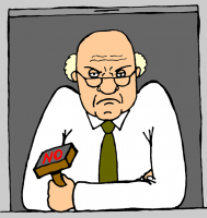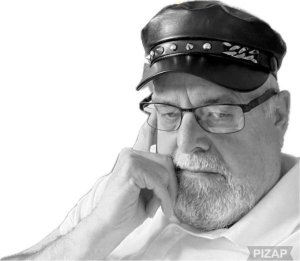I haven’t posted much recently, and this is because – as my regular readers will know – I ‘do what I see my Father doing’. And just lately He hasn’t been ‘doing’ me posting on my blog.
Lately, I have become more and more concerned about the way in which Christianity has been twisted by a combination of political and religious powers, to the point where many Christians no longer feel comfortable identifying as ‘Christian’ because of the harshness and nastiness that that ‘label’ now – quite rightly – brings to mind in the thoughts of someone not associated with the Faith. People are not wanting to be called Christians any more because of the bad behaviour of right-wing Evangelical nasties. But, personally, I won’t let the pirates and interlopers steal my own birthright: the right to carry the Name of the One Who loves me. Come what may, and even given all the negative connotations that the name carries, it’s still my birthright. Tarnished and sullied by the unclean it may be, but it still means the world to me[1]. It was mine to begin with, before the bad guys stole it and made it unclean to be seen wearing.
I’ve also decided that, at my age[2], it’s my turn to gripe and moan about the ills of society, bureaucracy, officialdom and the lack of any kind of sense of humour in many people. I’ve lived long enough to have seen the unchanging nature of human civilization, its pettiness, its frustrations, its curse of repeating history and not learning past lessons[3] to have hoped from childhood that things must surely get better; they can’t persist in those methods for long, surely? Only to find out that indeed they don’t get better, and they do persist[4].
This isn’t from a point of view of hopelessness. This is from a point of view of someone who is an upbeat, happy and positive person who nevertheless wants to point out the things wrong with society, so that even if nothing ever changes, at least others can see that they are not alone in their frustrations. I have a firm belief in God and in His plans for bringing ordinary people into the blessings of His presence. Maybe that will gradually help to change society in the process; who knows. But this is not the sort of thing you will read about or hear about in the news, because modern news only concentrates a) on the bad news, and b) on the things that politicians are saying – which usually comes under category (a) in its own right 😉 God seems to work more in the quiet, small unassuming things of life, like someone holding open a door for the person following them, or letting a hassled young mum, with an armful of tired toddlers, go first in the queue. The little things of life.
Some of this stuff may appear political. I don’t get involved in party politics; while I do exercise my hard-won right to vote and thereby participate in democracy – which “…is the worst form of Government except for all those other forms that have been tried from time to time…”[5], I don’t openly profess allegiance to any political party. The idea of this series is to address and call out official bullshit no matter its source. I also won’t be addressing every issue on the table; just the ones I feel called to address. My silence on an issue does not indicate any opinion on it in any way.
And I am not necessarily going to propose any solutions, except maybe occasionally to show that there is a better way, and that better way usually involves something that looks like treating others fairly and treating them well. That said, there are a lot of nasty people out there and I’m afraid I do believe that anything bad that happens to those people is simply them getting their own just desserts. I’m not into treating bad people all nicey-nicey. This does not clash with my beliefs on Grace: the undeserved and unearned favour of God Who loves all people. No, this is simply people getting their just desserts so that, hopefully, they can learn from their mistakes and become better people for it.
I’m not claiming to be any better than anyone else. And even if I am, it isn’t anyone else’s place to judge me for that or for anything else. I’m not forcing anyone to read my drivel, but if you find it helpful – which I sincerely hope you will – then that’s great. But, being a Yorkshireman, I like to say it how it is and, if that means I lose others’ favour along the way, then so be it. I’m not in this game to please others anyway 🙂
So, I’ll get on and write some pieces for the series now. I hope you will find them helpful! 😀
Header picture is a beautiful shot of the buildings housing the seat of British Government: the Houses of Parliament, and I use it here to symbolise ‘power’. While much of the current hijacking of Christianity is taking place in the United States, there is also a slow and insidious infiltration of the same types of problems into British Christianity. So, while I am a UK citizen, I could equally have placed a picture of the US Capitol Building as my header picture, and it would have meant the same thing.
Footnotes
| ⇧1 | This is an almost verbatim, direct quote from where I have written this before, in this article |
|---|---|
| ⇧2 | I’m 62 at the time of writing |
| ⇧3 | I have heard it said that the only lesson we learn from history is that no-one ever learns the lessons of history |
| ⇧4 | It is worth me emphasising at this point that this is not meant to be a doomsday kind of statement, nor is it any claim that ‘things were better back in the day’ because, despite what the naysayers might try to tell you, the average standard of living worldwide is now far better than it has ever been before. |
| ⇧5 | Winston Churchill, quoting an ‘unsourced aphorism’ – someone else invented the phrase, but Churchill quoted it without naming the source – which he likely didn’t know anyway). My source for this information is here |









